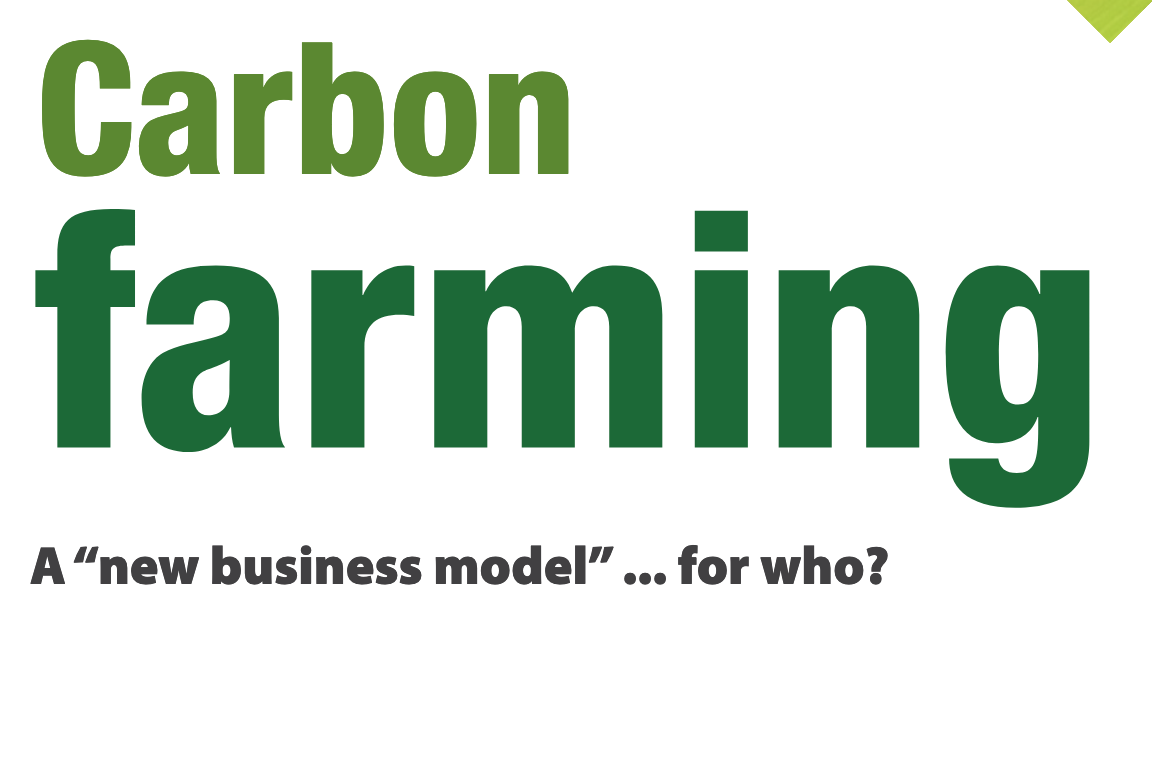From www.eurovia.org
On 23 March, European Coordination Via Campesina published a new analysis on carbon farming, entitled “Carbon farming: A ‘new business model’ … for who?”.
Of the many proposals in the European Green Deal from December 2019, carbon farming is one of the main focuses of the European Institutions at present. It is one of the priorities of the French Presidency in the Council of the European Union and ECVC considers the initiative to be extremely dangerous for food sovereignty.
The publication details the contextual, political and economic roots of the initiative, which encourages farmers and owners of land and forests to adopt practices that facilitate the absorption of carbon dioxide in soil and biomass, to help limit climate change and global warming. ECVC agrees that it is necessary and appropriate to take ambitious measures to tackle climate change, but nonetheless the planned approach raises various questions, which the publication aims to examine.
While a real practical transition to peasant agroecology is urgently needed, more than ever in the context of the war in Ukraine, the EU Institutions have instead decided to limit themselves to a catalogue of “good practices” that hides a lot of very dangerous measures.
The publication explains why carbon farming is, in reality, an unstable and unviable source of revenue for farmers that creates enormous levels of uncertainty. It is an extremely complex mechanism, in which many experts and consultancies will play a role in trying to standardise an agricultural system in a way that can only do more harm. The mechanism is likely to provoke confusion between sequestration and reduction of emissions, requiring both costly external expertise that threatens farmers’ autonomy on their territory and the collection of a problematic amount of data. The impact on land tenure of these mechanisms are of utmost concern.
The true solutions to the problems posed by industrial agriculture are found in promoting real peasant agroecology, which considers not just the ecological aspects of food but also the social, cultural, economic and political aspects. This requires a multifaceted and holistic approach to agrarian systems as a whole, and cannot be summarised in a catalogue of practices.
The European Commission presents carbon farming as a miraculous solution for climate change, whilst failing to recognise the structural limits and the great danger that it represents for society in terms of food sovereignty and inaction in the face of climate change. It is time to start a real transition to peasant agroecology and promote a healthy and resilient agrarian system that respects nature and human beings.
You can read more about ECVC’s position on carbon farming in the full publication, available in English, French and Spanish.
Contacts
Attila Szocs, ECVC Coordinating Committee – +40 771 405 819 – EN, RO
Morgan Ody, ECVC Coordinating Committee – +33 626 97 76 43 – FR, EN
Vitor Rodrigues – ECVC Coordinating Committee: +35 196 646 80 55 – PT, ES, EN


